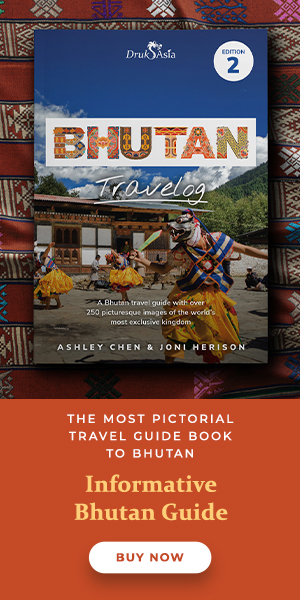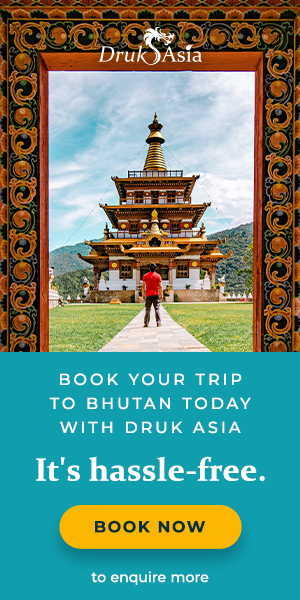“The measure of a great country is how it looks after its most vulnerable people”
UN’s resident coordinator and resident representative of UNDP, Gerald Daly, speaks to Kuensel’s Tshering Palden on UN and Bhutan’s relationship. Excerpts
How has the partnership between UN and Bhutan been so far?
UN recognised Bhutan in 1971 and the UN Bhutan office was established in 1974. In terms of partnership and a trusted relationship, I think that the greatest example was the decision by His Majesty in 2014 to send peacekeepers to the UN. This was a major strengthening of the trusted relationship between UN and the government.
That relationship is seen across all sectors we work. We’ve invested USD 45.7 million in the last three years. We work literally with every ministry. I think development needs flexibility. As we strengthen, develop and support the CSO community, I think we’re going to end up with a stronger form of development where the UN is really playing a catalytic role. When I say catalytic, I mean that increasingly now and in the 12th Plan, we’re going to have to start work on areas such as sustainable development goals (SDG) data, upstream policy work and the academic institutions.
I am impressed by the work UNICEF and UNFPA do in support of Sherubtse College. For example, we’re supporting population development studies degree, and masters programme in social research, which is a good development because it is all about capacity building. So the more the UN is helping to build capacity, strengthening the different institutions at tertiary level, the more we are doing sustainable development.
How much of the cultural preservation component is in the SDGs because it’s one of the pillars of GNH?
I acknowledge that this is one area where SDGs are weak. SDG framework is not sufficiently strong on culture. I think this is an area where the government can come and produce suggestions back to the UN General Assembly in New York. I believe that this will be one area where Bhutan will be showing the rest of the world how to improve the SDGs. That is just one example where Bhutan is a leader to the international community besides its Constitutional commitment to 60 percent forest cover and others.
How are UN agencies helping to tackle climate change?
The top five UN agencies are UNDP, UNICEF, WFP, WHO and UNFPA. Climate change has many aspects. UNDP has a project in Rinchending, Chukha. It is an innovative slope stabilisation helping to keep open one of the main arteries between Phuentsholing and Thimphu. WHO is working on how climate change is bringing changes to how we need to think about health conditions in the country.
My suggestion is that each of these agencies always focuses on the part of climate change that makes more sense to them or is their area of comparative advantage. Likewise, FAO is helping the country to adopt the best crops for a climate that is evolving.
Should there be a disaster, WFP, UNICEF and WHO should be able to play an important role, as they have the expertise in disaster response and we have done a contingency workshop. Contingency workshops for earthquakes, the type of preparations that we need to do for an earthquake have lots of similarities with that of GLOFs. We also support Department of Disaster Management during monsoon, as we grapple with the challenges of climate change.
How has Bhutan’s transition to a democracy impacted how UN works in Bhutan?
One of the big changes is our engagement with the parliamentary committees. The committees are strong nowadays and we’ve four agencies working with them – UN Women, UNFPA, UNICEF and UNDP.
We now have to strategise how we engage with the CSO community, as His Majesty gave the CSOs such a great boost last December that invites the UN to ask the question on how we can further support this move. UN is entering into a partnership with Loden Foundation on setting up a network of change makers in development, which will be an opportunity in this area.
What does UN do to support democracy in Bhutan?
I mentioned the work we’re doing with the parliamentary committees. We also have a programme with the Anti-Corruption Commission. There is a real desire to be transparent in this country so that we don’t allow corruption to take root. This is an area where UN wishes to continue supporting.
UNICEF supports the children’s parliament. I find that work to be future-oriented because the young people of today will be leaders of the future.
As we think about development for future we have to be focused on the investment case for development. What I mean is research shows that if we invest in early childcare, we’ll end up with children who are stronger mentally and emotionally. They’ll then go on to having more careers that are more successful as they understand their careers. So that small amount of investment can yield great benefits as the child grows stronger and becomes a young adult and joins society as an active member.
We’d be putting as much money and resources into disaster mitigation. You are already anticipating the challenges of future and how you do development today. An example is food fortification. Some of the challenges of nutrition can be dealt through rice fortification.
UN committed USD 78 million in 11th Plan, has there been any consultations with the government on the 12th Plan?
We’ve already started discussions on how to support the 12th Plan back in January this year. That went up a degree at the round table discussions in March. There are a number of areas we’re probably going to be working. The work with education ministry will continue. FAO and UNDP will continue working with agriculture ministry, WHO’s work with health ministry will go on. All the UN agencies will identify areas where they can add value to the government’s 12th Plan. We’re closely following the developments with the GNHC.
We’re identifying challenges such as urbanisation. The other challenge is how do we look after the most vulnerable groups in the country. In my opinion, the measure of a great country is how it looks after its most vulnerable people. Together with the government, we have done research on vulnerable groups in Bhutan and we started discussions with the government on areas where we can support even more.
What is very interesting about this work is – it is not just discussion here in Thimphu but is also going to the dzongkhags. Some of the dzongkhag level discussions talk about how we can help handicapped people. I think this is one of the vulnerable groups in Bhutan and this is an area where the UN is assisting the government. So it strikes me as great that this language of assisting vulnerable groups is getting down to the remote parts of the country and they are identifying people who deserve to be supported. The UN is only assisting because three years ago, the Bhutan government signed the Disability Convention. We’re working with the government to ratify it. The other area where we add value is gender based violence. We work with NCWC on how best women are treated equally not in their work place but their homes as well. That goes back to assisting the most vulnerable and leaving no one behind.
How much is UN assisting Bhutan avail the climate change projects?
Since the early 1990s, the small grants projects have implemented 155 projects around the country. As climate change has become a more global phenomenon, there is more money available. The UN and developing partners are helping Bhutan access those funds. I believe that in the next five years, we need to be helping the government build the skill sets to access those funds, so that you have the technical expertise that you require to prepare specific feasibility studies on projects and writing those projects with detailed analyses.




